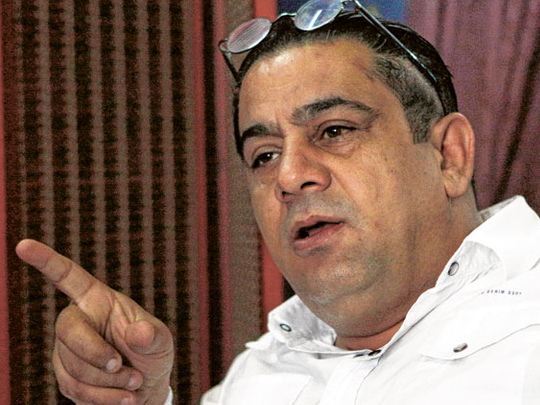
Baghdad: The prominent Iraqi journalist shot to death on Thursday in his Baghdad home had recently warned supporters that he was the target of death threats, friends and associates said on Friday.
Hadi Al Mahdi, a popular radio journalist who was vocal in his criticism of the government, had been using Facebook to publicise a protest against government corruption on Friday in Baghdad's Tahrir Square. Friends said that Al Mahdi had sent panicked e-mails to supporters in recent weeks saying that he feared for his life and that he believed that the government of Iraqi Prime Minister Nouri Al Maliki had assigned mercenaries to attack him on the street with knives.
Then, on Thursday, he came close to predicting his own demise. "I have lived the last three days in a state of terror," he wrote in a post on his Facebook page that morning. "There are some who call me and warn me of raids and arrests of protesters. There is someone saying that the government will do this and that. There is someone with a fake name coming on to Facebook to threaten me."
But he remained undeterred: "I will take part in the demonstrations, for I am one of its supporters," he wrote.
Friday, Al Maliki's government had no comment on Al Mahdi's death. But its opposition block in parliament, Iraqiya, demanded a full investigation. Iraqiya issued a statement condemning the crime as a "desperate attempt at muzzling and to bring Iraq back to the republic of repression, fear and despotism".
Al Mahdi was shot around 1pm on Thursday in the kitchen of his house on Abu Nawas street, officials said. There was no sign of forced entry, and an individual said it appeared that Al Mahdi was serving tea to his attacker. "It's a regular criminal case," said Qasem Atta, the spokesman for the Baghdad Operations Command.
"The police will take care of it and investigate it." Al Mahdi's death sent a chill through Iraq's close-knit community of journalists and civil right activists, many of whom said they had been roughed up and detained by security forces in February, when Iraqis took to the streets en masse as part of the Arab Spring movement that swept through the Middle East.
"There's a lot of fear," said Zaid Al Ajili, the executive director of the Journalistic Freedoms Observatory. "We don't know what to do."












